News
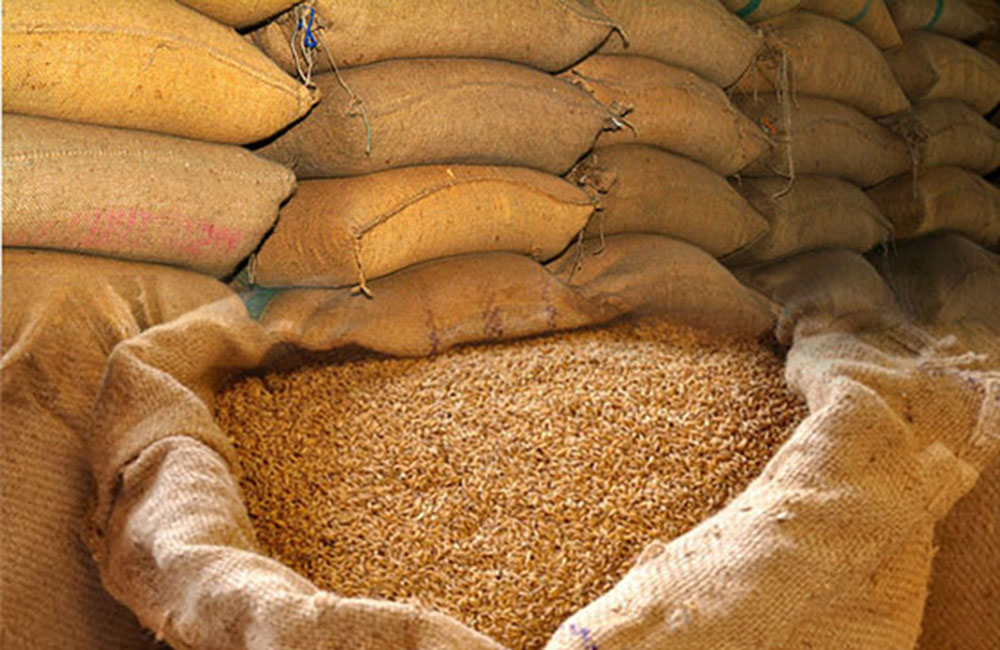
Paddy worth Rs. 100 M goes missing from PMB warehouses
Paddy worth Rs. 100 million has gone missing from five warehouses of the Paddy Marketing Board in Kurunegala, said the Ministry of Agriculture.
After workers complained, minister Mahinda Amaraweera has ordered the PMB chairman to furnish a detailed report within three days.
Upon receipt of the report, the matter will be handed over to the CID for investigation, said Amaraweera.
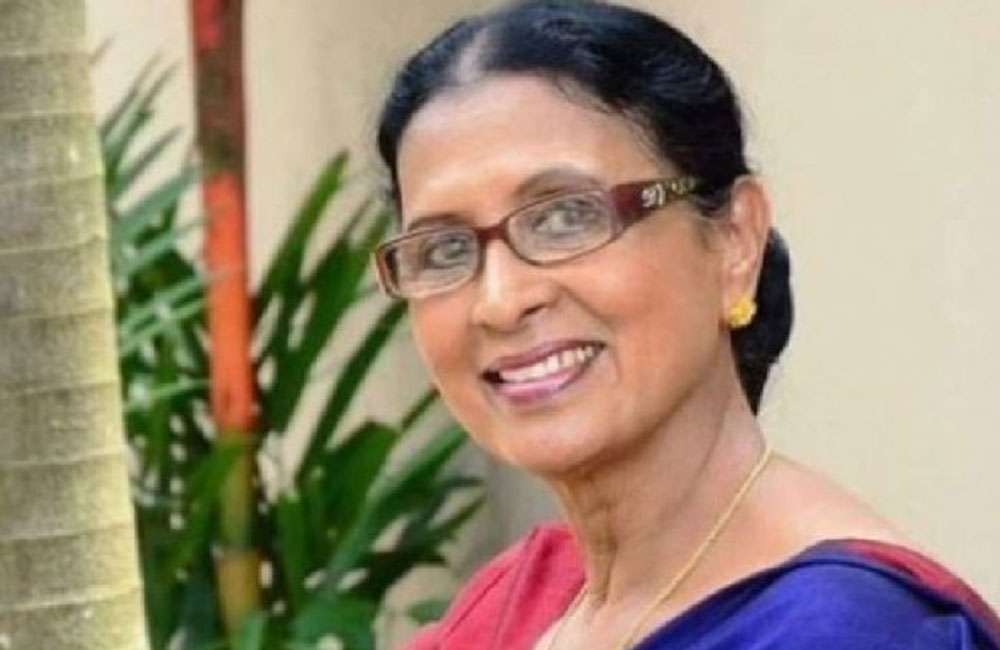
Famed Dancer and dance teacher Kalasuri Rajini Selvanayagam passes away
Famed dancer and dance teacher Kalasuri Rajini Selvanayagam has passed away, aged 71.
Rajini Selvanayagam, who was dubbed the Queen of Dance, was also honored with Kala Keerthi and Vishwa Kala Keerthi awards.
Born and raised in Balangoda, she entered the world of arts and left her mark as an extremely talented teacher who gifted her knowledge to the students of Sri Lanka.
Funeral arrangements of Kalasuri Rajini Selvanayagam will be announced later.
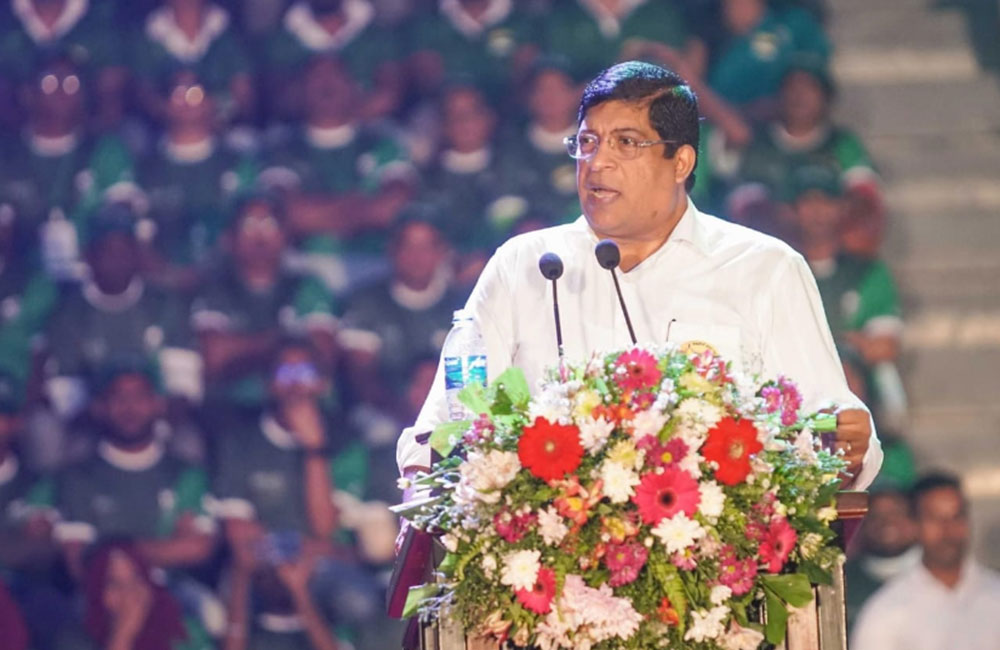
Ravi apologizes to all UNP supporters
Senior UNP leader Ravi Karunanayake has apologized to all UNP supporters for a lack of attention paid to them, while maximum efforts were being taken during the good governance regime to revive the country.
The finance minister at the time, he said the result was that nearly three million supporters abstained at the last general election to hand a very bad defeat for the party.
He assured them that no injustice will be done to them in the future, when he delivered the welcome speech at the UNP’s special convention at Sugathadasa Indoor Stadium in Colombo on 21 October.
UNP is one big family
Karunanayake also extended an open invitation especially to all deserters to return to the party.
“The UNP is not a family party. Its value is that the entire party is one big family. That is why we are called the united national party,” he said.
We made, and will continue to make, the country
Every time the economy of the nation and the people suffered, the UNP uplifted them.
“The UNP is a party that makes the country. It was the party that introduced the Mahaweli, universities, ports, Mahapola, housing, trade and industrial zones and modern technology.”
Ranil proves himself as reviver of the country
After Ranil Wickremesinghe, as the prime minister, resuscitated the economy in 2015, he was again entrusted with the task of uplifting the country from bankruptcy in 2022, he said.
“We proved by action in 2015 that only the UNP can uplift the economy. As the finance minister, I implemented a special programme to strengthen the economy,” said Karunanayake.
A year ago, president Wickremesinghe started rebuilding the economy and the ‘lone elephant’ was able within two months to work with other parties in parliament.
“Everywhere, talk of the town is his excellent action.”
Real leader surfaces during a crisis
Even those who make boastful remarks accept him to be the only leader to work with a vision for the future, he said.
With a new constitution for the party, the UNP is going to create an extensive alliance for all to unite as one and to take the party on the path to victory in 2024 and form a government, he said.
Ranil will be the common candidate
Karunanayake appealed to all to help rectify shortcomings, awaken the dormant party supporters and extend support to take the country to development.
At the same time, the UNP should implement a mechanism to strengthen the supporters, said Karunanayake, adding that he would promise to give them priority under such a government.
The incumbent will be fielded as the common candidate at the 2024 presidential election, and the victory thus gained will take the country to speedy development, he added.
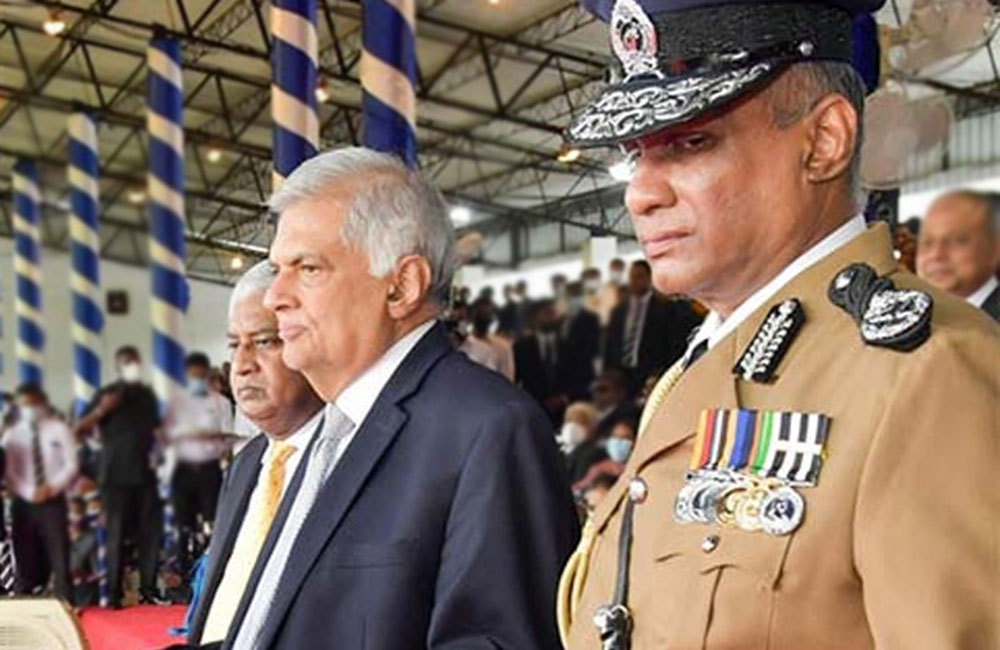
Did president consult public security minister before granting an extension to IGP?
Public security minister Tiran Alles said the president consulted him before granting a three-week service extension to police chief C.D. Wickramaratne.
Alles reacted as baseless to certain social media reports that claim he was unaware of the decision.
The minister said the president had lengthy discussions with him regarding the matter prior to his (Alles) overseas visit last week, with the president too, due to go to China within days.
A decision was taken there to appoint Wickramaratne on an acting capacity for three weeks until their return home.
Alles added that extending the IGP’s tenure until the end of this month would not be a problem.
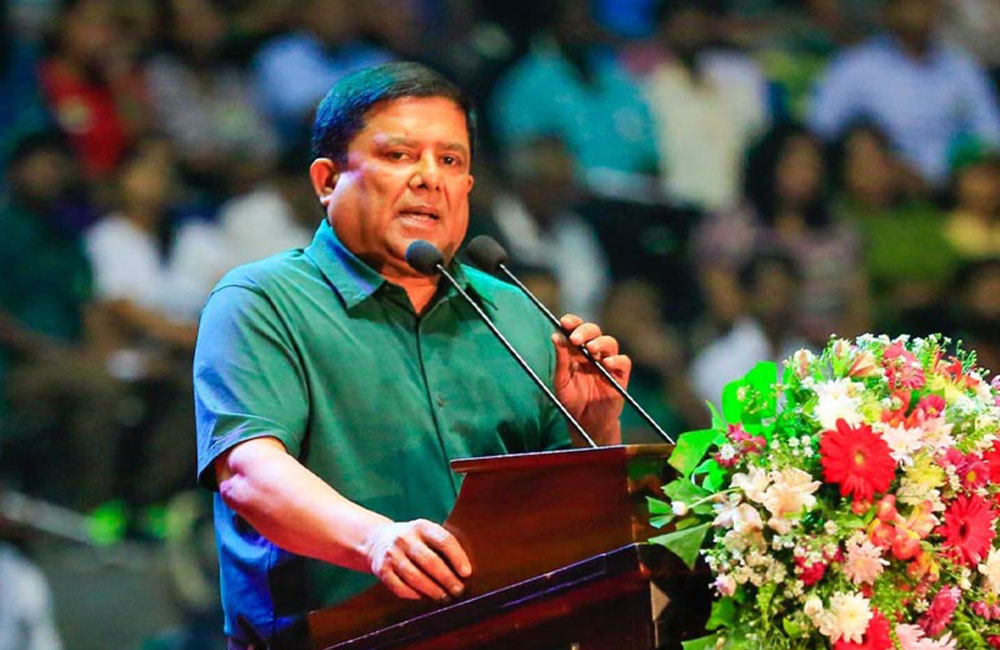
Ranil will poll 10 million votes in 2024 - Wajira
Incumbent Ranil Wickremesinghe will poll 10 million votes and win the 2024 presidential elections, said UNP chairman Wajira Abeywardena.
Addressing the party convention at Sugathadasa Indoor Stadium in Colombo yesterday (21), he said that as per the constitution, the presidential polls would be followed by parliamentary elections next year.
Early 2025 will see the holding of the provincial council polls, he said.
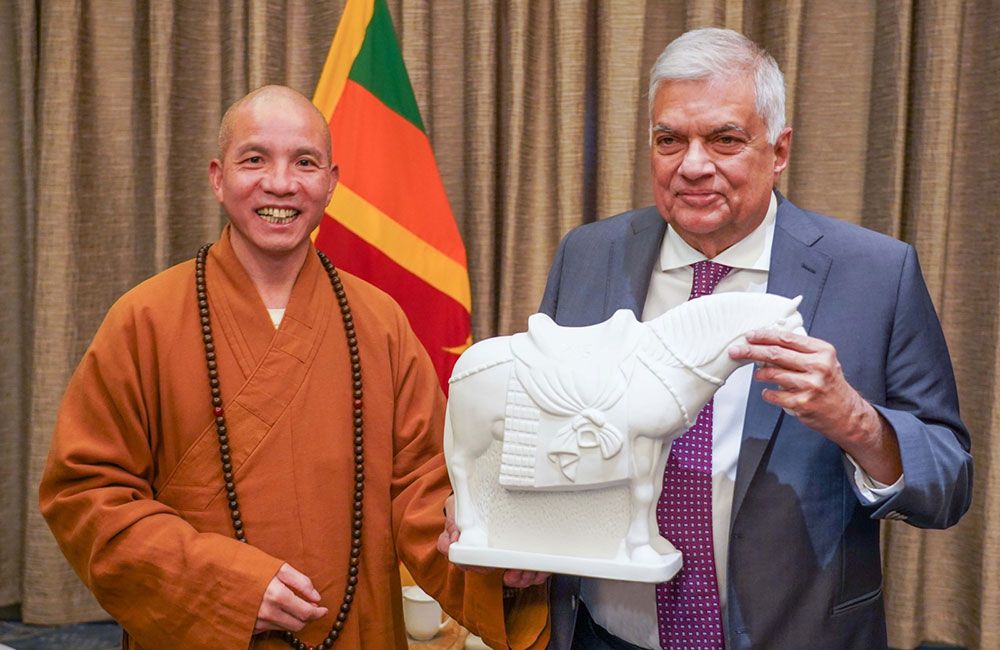
SL to resume construction of Sri Lankan Temple Complex at China’s ‘White Horse’ Temple
President Ranil Wickremesinghe announced the commencement of the construction of a temple and a Stupa in Henan Province, China, designed to embody traditional Sri Lankan architectural elements reminiscent of the historic “White Horse” temple.
This temple complex is recognized as China’s first Buddhist shrine. The decision to undertake this project was made during a recent discussion held in Beijing, in which President Wickremesinghe engaged with the head of the “White Horse” temple, His Holiness Yin Lee.
The initial stone for this temple’s construction was laid during the tenure of Mr. Ranil Wickremesinghe as Prime Minister, with Mr. Karu Jayasuriya, the then speaker, officiating the ceremony. Regrettably, the project had been put on hold, but now, under the leadership of President Wickremesinghe, it is set to recommence, with new plans in the making.
The President also emphasized that this temple will house copies of Buddhist Pali scriptures, which were brought from Sri Lanka to China by the renowned monk Faxian. These invaluable scriptures will find their new home in this temple, marking a significant cultural exchange between the two nations.
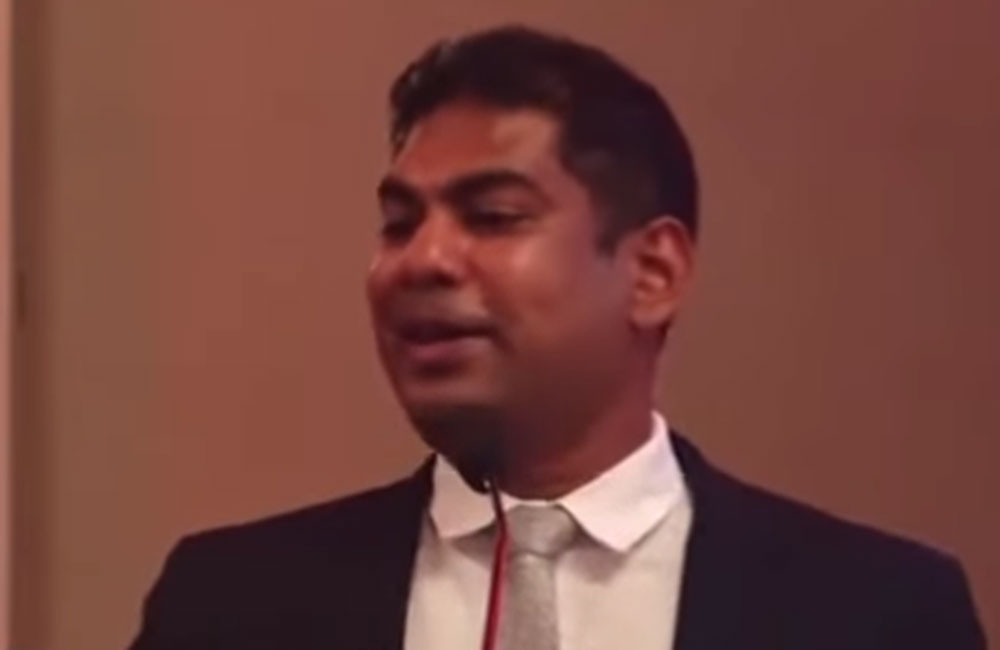
New Daily Pricing System for Fuel from February
Sri Lanka is set to introduce a daily pricing formula for fuel in February 2024, as announced by the Minister of Power and Energy, Kanchana Wijesekara.
Under this new system, fuel prices will be determined on a daily basis, marking a significant shift from the existing pricing structure.
This change aims to provide more transparency and align fuel costs with global market fluctuations.
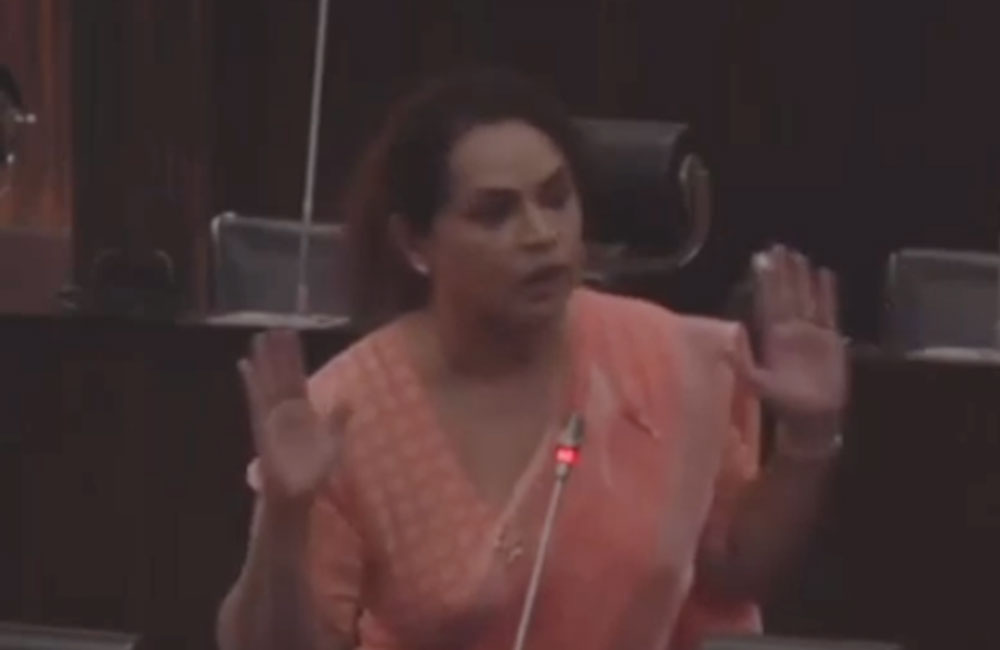
State Minister Diana says SJB MP assaulted her inside Parliament
A committee has been appointed under the Deputy Speaker to look into the incident that is alleged to have taken place between State Minister Diana Gamage and SJB MP Sujith Sanjaya Perera, Speaker of Parliament Mahinda Yapa Abeywardana announced.
State Minister Diana Gamage had earlier accused that SJB MP Sujith Sanjaya Perera assaulted her in Parliament.
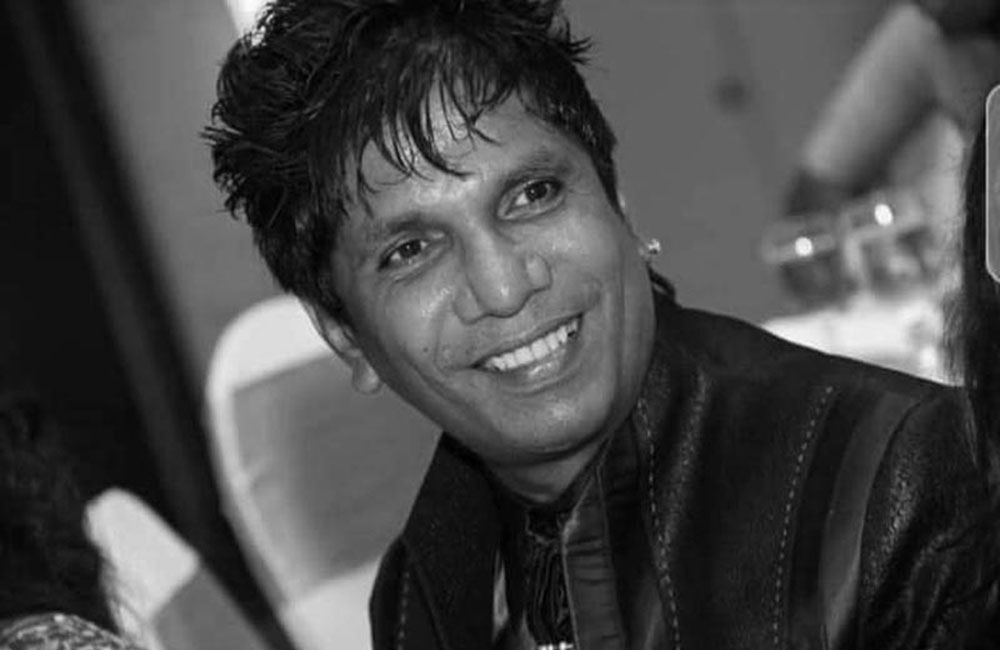
Death of veteran beautician Premasiri Hewawasam
Well-known beautician Premasiri Hewawasam has died, aged 64.
Following a sudden illness, he was rushed to Homagama Base Hospital in the early hours of this morning (22).
As a teacher, his professional courses together with the National Youth Services Council were well-received.
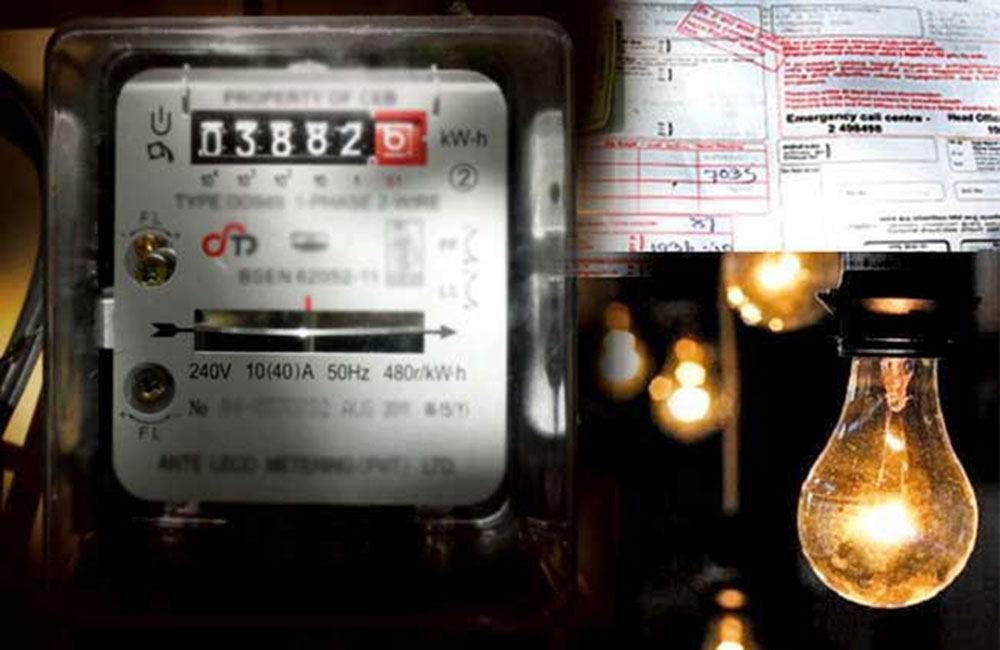
PUCSL approves electricity tariff hike
The electricity tariffs have been increased effective Friday (20), by between 18 to 20%.
The Public Utilities Commission of Sri Lanka revised electricity tariffs after assessing the facts presented by the Ceylon Electricity Board (CEB).
The most notable revision is the higher percentage of increase in tariffs for low-consumption consumers.
Under the new tariffs, a household that consumes 30 units of electricity will pay 540 rupees, up from 450 rupees. This is a 90-rupee increase, or 20%.
Consumers who consume 60 units or more will see their tariffs increase by 18%.
For example, an entity that previously received a bill of 4470 rupees will now be charged 5280 rupees.
This is an increase of 810 rupees, or 18%.
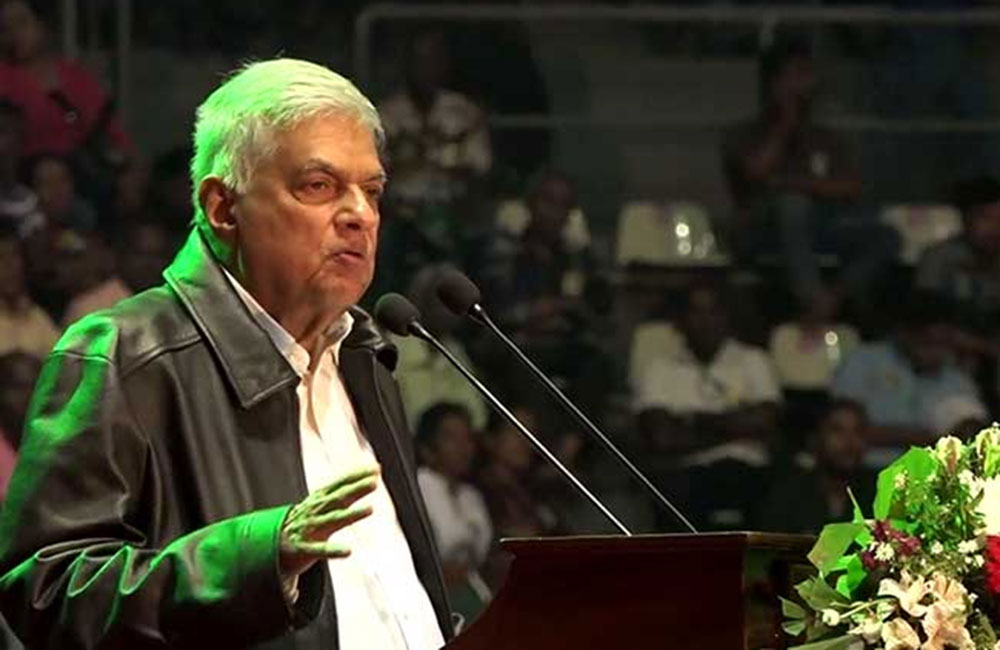
Presidential and parliamentary elections will be held in 2024 – President Ranil
A Presidential Election is set to take place in 2024 in accordance with the Constitution of Sri Lanka, President Ranil Wickremesinghe has revealed. Furthermore, the Presidential Election is also set to be followed by a General Election, the Head of State said at a United National Party (UNP) convention held at the Sugathadasa Indoor Stadium this afternoon (21 Oct.).
Addressing the Special General Convention of the UNP, President Wickremesinghe emphasized his commitment to bolstering the country’s economy by positioning Sri Lanka as a smart nation.
Accordingly, the Head of State outlined the timeline for upcoming elections in line with the constitutional provisions, and added that local government elections are expected to transpire in the first half of 2025.
President Ranil Wickremesinghe made these remarks during his address at the Special General Convention of the United National Party held at the Sugathadasa Indoor Stadium in Colombo today (21).
The theme for this year’s UNP Anniversary convention was “Smart Country – 2048.” The vision behind this concept is a vision of an intelligent and prosperous Sri Lanka, where every citizen recognizes their potential, upholds virtuous goals, and embraces diversity while harnessing modern technology and nature to cultivate a nation of adept and resourceful individuals. The “Smart Country” concept envisions the creation of a prosperous nation.
Departing from conventional party politics vying for power, the main objective of this year’s UNP Special Convention was to adopt a nation-centric approach to reorganize the party for this purpose. Party leader President Ranil Wickremesinghe also presented an amended party constitution designed to facilitate this transformation.
A significant amendment allows the United National Party to establish an online presence and engage actively in social media platforms, thus facilitating the digital transformation of the party. The President emphasized the need for the UNP to evolve into a technologically adept and intelligent party, aligning itself with the broader vision of building both a smart nation and a smart party.
Prime Minister Dinesh Gunawardena, leader of the People’s United Front, extended his congratulations to the United National Party Special Convention.
The Sugathadasa Stadium was packed to capacity, with attendees representing various regions of the island, including the North and East. The event was inaugurated with immense pride, featuring the party leader, President Ranil Wickremesinghe.
The celebration also featured cultural and artistic elements, underscoring the diversity and richness of Sri Lanka’s heritage.
Minister Manusha Nanayakkara presented President Wickremesinghe with a “Let’s start with me” badge, symbolizing the collective effort needed to construct a smart nation.
During the ceremony, an archived edition of the “Siya Rata” newspaper was presented by its editor, Mrs. Maya Kalubowila, to President Ranil Wickremesinghe, who, in turn, handed it over to the Secretary General of the party.
The President stressed the imperative need to eradicate corruption and emphasized the passage of long-awaited anti-corruption legislation, along with the introduction of multiple ordinances to combat corruption both within the government and political parties. He reiterated the United National Party’s strength in contributing to the nation’s economic development and emphasized the party’s role as a forward-looking entity that will serve the nation’s interests in the future.
Notable speakers at the conference included United National Party President and Member of Parliament Wajira Abeywardena, Deputy Leader of the Party Ruwan Wijewardena, National Organizer Sagala Rathnayaka, Deputy Leader Akila Viraj Kariyawasam, Labour and Foreign Employment Minister Manusha Nanayakkara, Minister of Lands and Tourism Harin Fernando, along with General Secretary Palitha Range Bandara and former Minister Ravi Karunanayake.
A multitude of senior officials, United National Party members, former ministers, and religious dignitaries led by the Maha Sangha graced the occasion.
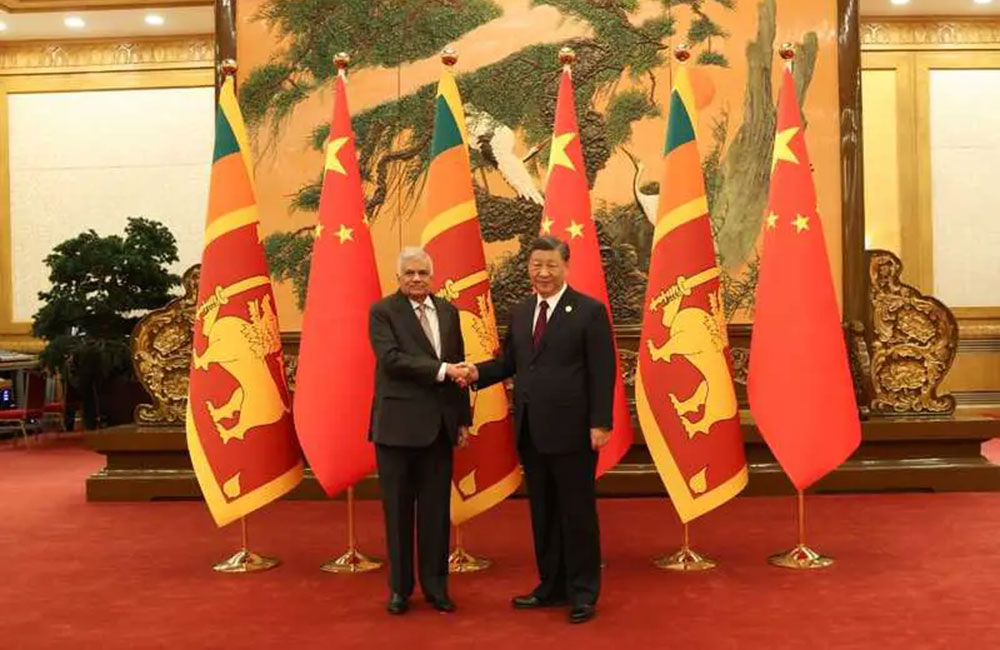
Ranil meets Xi: China pledges to support Sri Lanka to develop ports through BRI
President Ranil Wickremesinghe on Friday met with Chinese President Xi Jinping in Beijing.
During the bilateral discussions, both leaders pledged to further consolidate the strong partnership and extensive cooperation between Sri Lanka and China. Meanwhile, Chinese Vice Premier Ding Xuexiang expressed profound gratitude for Sri Lanka’s enduring support through the historic Rubber-Rice Pact with the People’s Republic of China when he met President Wickremesinghe yesterday (19).
Emphasizing that the Chinese people will always remember this gesture of goodwill, Vice Premier Ding Xuexiang assured that China remains committed to extending its supportive hand to Sri Lanka.
Reaffirming China’s unwavering support for the development of the Colombo Port City and Hambantota Port within the framework of the “Belt and Road Initiative”, the Chinese Vice Premier expressed confidence in the successful realization of both projects under the leadership of President Ranil Wickremesinghe.
President Wickremesinghe underscored the historical significance of the China-Sri Lanka Rubber-Rice Agreement, the first foreign commercial agreement entered into by Sri Lanka. He underscored the importance of establishing new commercial relations that align with the shared principles of both nations.
The President expressed deep appreciation for China’s invaluable support in the face of the economic challenges confronting Sri Lanka. He emphasized the enduring and strengthened friendship between Sri Lanka and China, particularly under the leadership of President Xi Jinping.
He also emphasized Sri Lanka’s commitment to preserving the identity and peace of the Indian Ocean region, advocating for the prevention of any power struggles in the area.
President Wickremesinghe further highlighted Sri Lanka’s aspiration to enter into a free trade agreement with China. He also pointed out that Sri Lanka is actively pursuing membership in the Regional Economic Relations Organization (RCEP).
Page 242 of 682